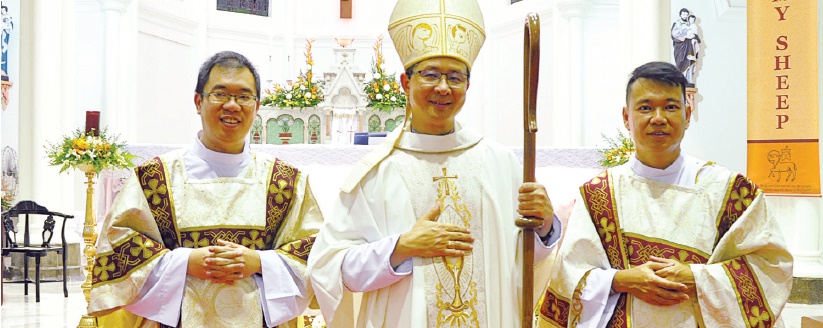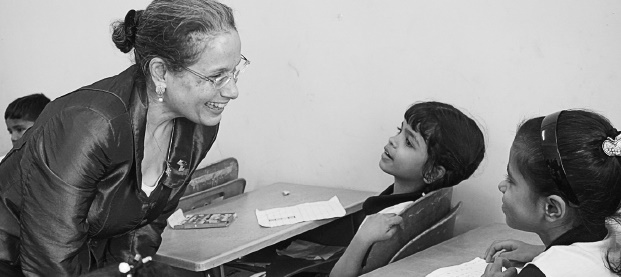One of the significant developments in the Church after Vatican II is the emergence of Basic Ecclesial Communities (BECs) in various parts of the world including Malaysia. In his encyclical, Redemptoris Missio 51, John Paul II considered BECs as “signs of vitality in the Church … a cause of great hope for the Church and a solid starting point for a new society based on the civilisation of love.”
The promotion and formation of BECs is one of the means of renewing the Church which was the aim of Vatican II. The communitarian vision of the Church as Communion and as People of God — a priestly, prophetic kingly people — has made it possible for BECs to emerge. The 1976 Aggiornamento and the subsequent Peninsular Malaysia Pastoral Conventions (PMPC), echoing the Vatican II vision of a renewed Church, recognised this when it declared:
“Our vision of the Church as communion, participation and mission, the Church as priestly, prophetic and kingly people, and as the Church of the Poor — a Church that is renewed — is today finding expression in one ecclesial movement. This is the movement to foster Basic Ecclesial Communities.”
The presence and vitality of BECs in the dioceses and parishes may be one of the indicators for evaluating how ecclesial renewal promoted by Vatican II and the 1976 Aggiornamento and PMPC being implemented.
For some dioceses the BECs, as envisioned by PMPC, is already a reality. For others it remains a dream. In the course of promoting and forming BECs, a lot of problems and concerns have emerged that need to be addressed.
Problems and Concerns
1. Sustainability
Many BECs that have been formed could not be sustained, especially when the parish priests who initiated them were transferred and those who took their place were not supportive. This was also the case, when external pastoral agents who helped form BECs were gone. Some BECs have run out of steam. The members were very enthusiastic at the start but they lose interest after a while.
2. Attendance and participation
There are BECs, where only a few actively participate in the ongoing activities (e.g. the montjyl BEC gatherings or the weekly Bible-sharing). Most of those who attend are women. The men and young people are seldom seen. Attendance and participation may increase during community Masses and during the Rosary months (May and October) as well as for the Christmas carolling.
3. Leadership
Some BECs have leaders who are incompetent and lacking in commitment. Others have leaders who are very authoritarian and dictatorial. Some are acting like little-priests, falling into a new form of clericalism of lay leaders. The leaders lack team-work. Many don’t go out of their way to reach out to the members and to encourage them. Others resort to policies and sanctions to assert their authority.
4. Relations with Lay Associations
In many cases the relationship between BECs and lay organisations tend to be problematic. Some members of lay associations regard BECs as just another organisation and because of this there is no need to participate in the BECs since they already belong to an organisation. Others claim that their organizations can be considered as BECs — so again there is no need to be members of the BECs in their neighbourhood or village. In some cases, members of BECs who become members of lay associations stop participating in their BECs. Consequently, a spirit of antagonism and competition prevails between BECs and lay associations.
5. Responding to Social Concerns and Issues
Many BECs remain inward-looking communities that lack social concern. Their activities revolve around Bible-sharing and liturgical celebrations. They do not respond to social problems and issues that they face – e.g. poverty, hunger, criminality, injustice, conflict, the destruction of the environment, etc. These BECs feel helpless in the midst of poverty and conflict. They are either incapable of addressing these concerns or they think that BECs should only focus on spiritual concerns.
6. Understanding the vision and nature of BECs
Many practitioners and members of BECs do not have an adequate understanding of the vision and nature of BECs. There are many who associate BECs exclusively with the small group or cell, composed of five to 15 families, who gather monthly to reflect on the Word of God. The BEC becomes just an activity (Bible-sharing) or that small exclusive group. But in the parishes, BECs are area-based — those who are staying within a certain vicinity form the BECs under the direction of the parish leaders. They are supposed to focus on community dynamics and ecclesiality.
Most of these problems and concerns are interrelated. The problems of sustainability and poor participation in BECs may be the result of problematic leadership, the use of coercive policies and sanctions, problematic relationship with lay associations, failure to respond to social concerns and inadequate understanding of the vision and nature of BECs.
Article reproduced from Herald Malaysia online












